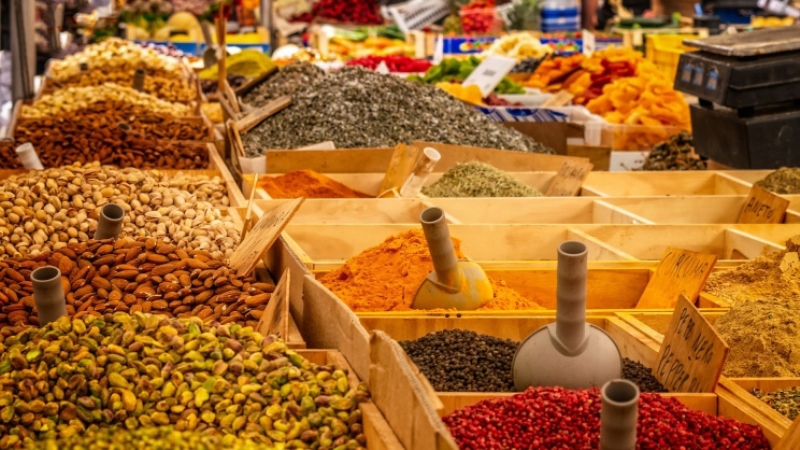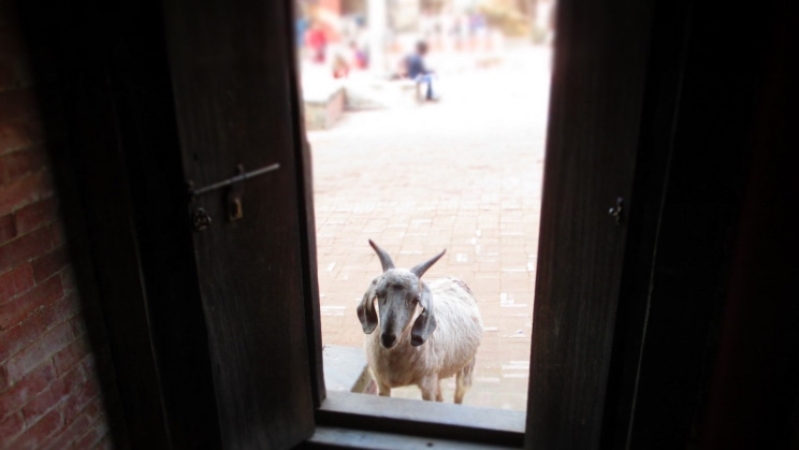In my experience, traveling as a vegan can be quite challenging. For instance, the language barrier can make it tricky when you are looking for vegan food. Luckily, there are a few simple things you can do that make for easier traveling as a vegan, apart from eating fresh fruits and vegetables all the time. Use these 7 tips on how to travel vegan and make your next trip less stressful and more fun!
1. Get to know your destination
Make sure you know where you are going before you pack your bags and embark on your journey. This is especially relevant if you travel as a vegan and need that vegan food. Make sure you know what the local customs are for preparing food. For instance:
- In Japan, many dishes are prepared with dashi, a broth made with fish. Cooks use it for preparing most dishes, whether it is fried or boiled. Above all, they also use bonito flakes, which are also made from fish.
- In India dishes are often prepared with ghee, a type of clarified butter. This is not something you can find out by looking at the dish. You have to ask.
- Big chunks of meat and fish are perhaps easy to identify in your food. Additives such as oyster sauce, fish paste, and milk derivatives are more hidden.
When you know which animal parts are typically part of a country's traditional cuisine, you will know what to look for and ask for a vegan alternative to the dish.
2. Use translations for common words
If you don't speak the local language of the country or region you are about to visit, it is a good idea to have some translations ready. U useful suggestion on how to travel vegan is to make a list of words and sentences that are important for you as a vegan and prepare some translations. This helps you to communicate about your food wishes.
You can prepare your own translations or download one of the available apps and online documents. Have a look at the following links to see of this suits your needs.
Of course you can prepare your own translation with online translation services such as Google Translate. If possible, ask a native speaker to check your translations, as Google may get it terribly wrong from time to time.
3. Familiarize yourself with local customs
People around the world have different customs and practices. These do not always correspond to what you are used to at home. Be prepared for what you might encounter so you can take appropriate action.
For example, Bhaktapur in Nepal has a large goat population. These goats roam around the town center freely, which as a vegan you will probably appreciate. However, on special occasions, these goats are sacrificed in public squares. Their throat is cut in plain view and this is definitely not something you would want to witness if you can avoid it.
Please be sensitive to other people's customs. You are, after all still a guest in their country. Starting a friendly conversation about animal use is often a lot more helpful than blatant condemnation.
4. Look around for vegan companions
How often have you shared a table with non-vegans, having to defend your veganism? Your life will be so much more fun with a group of vegan companions (or even a single vegan). There is no need to defend yourself at the dinner table or to talk about veganism at all. You are finally accepted for who you are and what you believe in. Just talk about your vegan dishes and recipes or about the country you are visiting.
Even better when you can enjoy the company in a vegan restaurant, where even the waiters and the cook understand you.
5. Make use of online sources
There are very useful online resources to assist on to travel vegan. A very practical one to help you find vegan food is Happycow. They have a very large database of restaurants offering vegan food, often with photos and reviews. Tripadvisor is also a good source to find vegan restaurants and read reviews.
Other websites, such as isitveganjapan.com, have a lot of information about which items in the supermarket are vegan. Especially useful if you don't speak the local language. If you are traveling in the USA, the app Is It Vegan? is very handy to find out if your supermarket product is vegan. Simply scan the barcode and learn all about the ingredients. Do some research before you go and make your life easier!
6. Support animals by visiting a sanctuary
You will find animal sanctuaries and rescue centers that care for animals in need in every country on this planet. These places are mostly run by volunteers, who are always willing to explain about the good work they are doing.
You can pay a visit to one of these centers to learn more about the animals and/or make a donation. Be careful: not all local 'sanctuaries' are real sanctuaries. There are many animal centers that use animals to entertain tourists. It can sometimes be difficult to tell if a sanctuary is genuine. Read my articles on How to choose an ethical elephant sanctuary and How to find ethical animal sanctuaries near you for more information on what to look out for.
7. Don't forget to talk to people
A very good way to enhance your vegan experience while traveling is to talk to people, especially to the locals. If you are in doubt if the food on offer is vegan, the best way to find out is to ask. There will always be people around to help you, even if the person in question does not speak English.
You can also talk to people about other things than food, for instance, animals or other vegan topics. Talk to them about the treatment of animals without being judgemental or condemning their practices. Try to have an open conversation and ask questions rather than tell them how they should be living their lives.
These are some of the simple things you can do to make your life a little easier.





